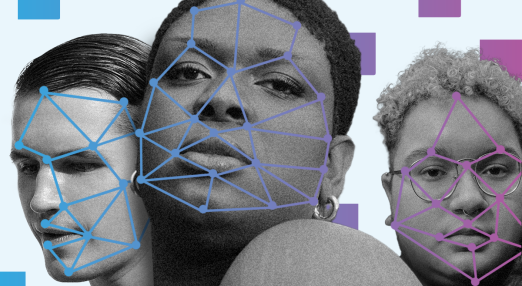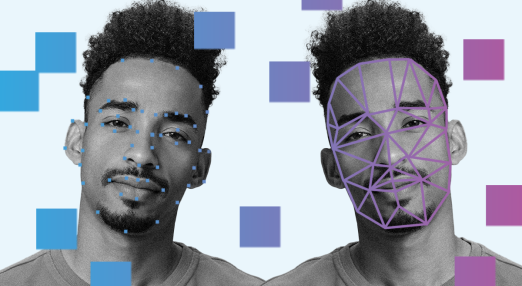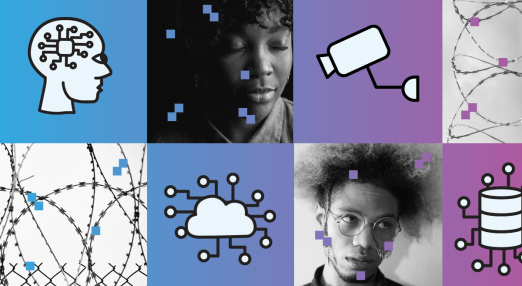Biometrics
Biometrics refers to the use of analytical tools and devices which capture, record and/or process people’s physical or behavioural data. This can include faces (commonly known as facial recognition), fingerprints, DNA, irises, walking style (gait), voice as well as other characteristics. Under the EU’s data protection laws, this biometric data is especially sensitive. It is linked to our individual identities, and can also reveal protected and intimate information about who we are, where we go, our health status and more. When used to indiscriminately target people in public spaces, to predict behaviours and emotions, or in situations of imbalances of power, biometric surveillance such as facial recognition has been shown to violate a wide range of fundamental rights.
Filter resources
-

Migrant smuggling laws: European Commission found in breach of transparency rules
The European Ombudsman has found that the Commission disregarded important transparency rules while preparing the Europol Regulation, which is a part of the legislation to "counter migrant smuggling". The inquiry concluded that the Commission didn't provide enough evidence to justify the claims of "urgency" to bypass their own 'Better Regulation' rules, and skipping public consultations, thorough impact assessments and evidence gathering.
Read more
-

Press Release: Commission’s Digital Omnibus is a major rollback of EU digital protections
Today the European Commission has published two Digital Omnibus proposals, reopening the EU’s core protections against harm in the digital age. This step risks dismantling the rules-based system that was hard-won over decades, endangering the very foundation of human rights and tech policy in the EU.
Read more
-

The AI Act isn’t enough: closing the dangerous loopholes that enable rights violations
While the EU's AI Act aims to regulate high-risk AI systems, it is undermined by major loopholes that allow their unchecked use in the context of national security and law enforcement. These exemptions risk enabling, among others, mass surveillance of protests and discriminatory migration practices. To prevent this, EDRi affiliate Danes je nov dan has published recommendations for Slovenia to adopt stricter national safeguards and transparent oversight mechanisms.
Read more
-

Czech police forced to turn off facial recognition cameras at the Prague airport thanks to the AI Act
The shutdown of the facial recognition cameras at the Václav Havel Airport in Prague came after years of criticism from EDRi member IuRe. The legitimacy of the criticism was confirmed by the Czech Office for Personal Data Protection. However, the Czech police continue to systematically violate the law in further processing of biometric data.
Read more
-

The Commission must uphold the AI Act and fundamental freedoms in Hungary
ECNL, Liberties and the Hungarian Civil Liberties Union called on the EU to protect Pecs Pride participants from AI surveillance.
Read more
-

OPEN LETTER: The European Commission must act now to defend fundamental rights in Hungary
With Budapest Pride set to take place on June 28, 2025, EDRi and 46 organisation are urging the European Commission to defend fundamental rights in Hungary so that Pride organisers and participants can safely exercise their right to peaceful assembly and freedom of expression.
Read more
-

LIBE vote on Europol reform blow to the Commission, but still legitimises an expanding surveillance regime
European Parliament's LIBE committee vote on a reform of the Europol Regulation was a mixed bag. Although it was a blow to the European Commission's original proposal, it still legitimised an expanding surveillance regime thanks to Europol's ever-growing power and resources. Read the Protect Not Surveil coalition’s statement.
Read more
-

Croatia in preparation for AI Law: Activists warn of risks to rights and call for safeguards going beyond EU AI Act
EDRi affiliate Politiscope recently hosted an event in Croatia for journalists and activists to discuss human rights impact of Artificial Intelligence (AI), raise awareness about AI related harms, and to influence future national policy to incorporate safeguards for people’s rights.
Read more
-

When technology is the problem, not the solution: Lessons from harmful consequences of techno-solutionism in digital surveillance
AI-powered surveillance systems are being deployed globally - from Israel and Russia to EU member states. These systems target marginalised communities under the guise of improving security and efficiency. To rectify these harms, we must challenge techno-solutionist narratives and rethink why and how technology is used, and center human rights.
Read more
-

Hungary’s new biometric surveillance laws violate the AI Act
This blog post is a legal analysis of new legislation in Hungary that uses facial recognition technology in a manner that violates the EU Artificial Intelligence Act. Such use of this technology risks discouraging people from exercising their fundamental rights undermining their trust in democracy.
Read more
-

Civil society to European Commission: Act now to defend fundamental rights from Hungary’s Pride ban and the use of facial recognition against protesters
EDRi, along with a broad coalition of civil society organisations, demands urgent action from the European Commission on Hungary’s new law banning Pride marches and permitting the use of live facial recognition technology targeting protesters.
Read more
-

Surveilling Europe’s edges: when research legitimises border violence
In May 2024, EDRi member Access Now’s Caterina Rodelli travelled across Greece to meet with local civil society organisations supporting migrant people and monitoring human rights violations, and to see first-hand how and where surveillance technologies are deployed at Europe’s borders.
Read more
